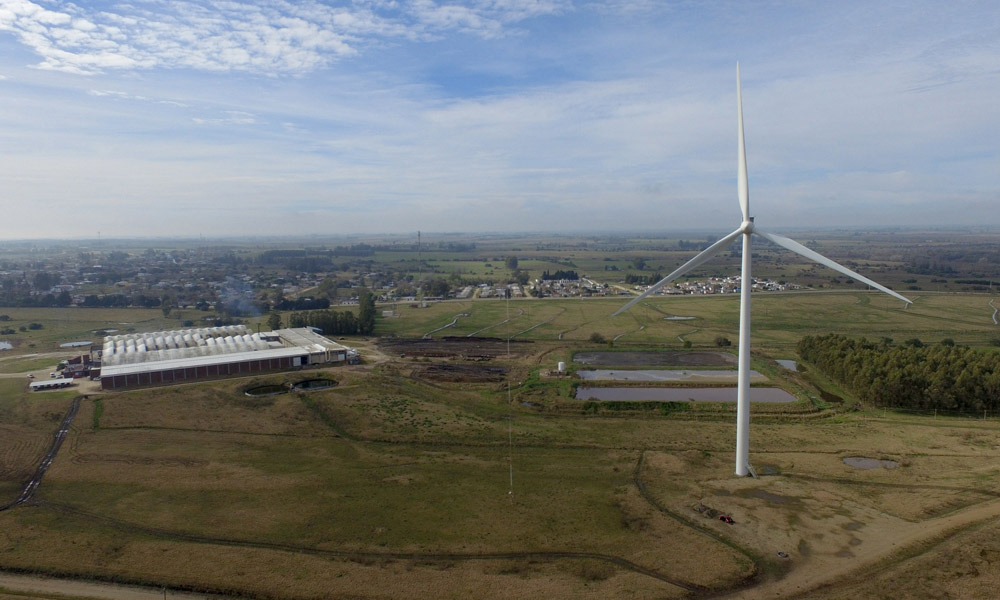Founder and Managing Director
of Ventus S.A.
Engraw was the first mill Ventus installed and the first case of self-generated energy. Tell us, what did it mean to you? (both at a business and personal level)
Projects such as the one carried out at Engraw have been particularly relevant during Ventus' beginnings. It meant the realization that this business model of self- consumption of energy positively contributes to caring for the environment, of course, but also enhances the company's results. By implementing this project, the wool company began to self-supply around 75% of its operations through renewable sources, which brought significant savings in energy consumption.

Do you think setting up the first mill to be installed at a private company forged the path for other private companies to follow? And do you consider that this caused other companies within the renewable energy sector to follow the same steps?
Engraw's case has undoubtedly been one of Ventus' major milestones, from which we have managed to become partners and confidants of large and medium-sized industries in Uruguay. Since this took place, we have been consulted by hundreds of companies seeking to analyze the possibility of installing wind or solar energy projects, according to their energy consumption needs. We have built more than 30 renewable projects for industries and installed about 40 wind turbines in Uruguay within this framework, thus becoming the leading company in the construction of wind and solar farms in this country.
Could you explain for people who do not know the self-sufficient energy system through renewable energy, how does it work?
In our country, medium and large consumers have the opportunity to produce and supply themselves with their own energy. In this sense, some energy-intensive companies install wind projects on their land, as is the case with Engraw, and supply for their operations with their own energy in a more economical way. Other customers, instead, choose to install solar energy systems, for example.

Do you think consumers value products whose environmental impact is positive?
Certainly. In general, Uruguay has promoted policies that sought to transform the energy matrix and succeeded in doing so. Today Uruguay is the country with the highest penetration of renewable energy in the continent, and the second in the world. At Ventus, we have actively participated in changing the matrix, thus experiencing first hand the way in which industries have been accompanying this initiative to switch to clean energy.
Where do you think the world will stand in terms of energy in 10 years? Both privately,regarding energy consumption at companies, and publicly, regarding energy consumption in households.
Without a doubt, we imagine a world that is even more largely based on clean energy. We imagine a greater supply of industries and homes through renewable energy, and therefore greater competitiveness in energy prices. We foresee a change within the transport matrix, which will surely gain wider relevance in the years to come. In summary, we believe that the future will be renewable.